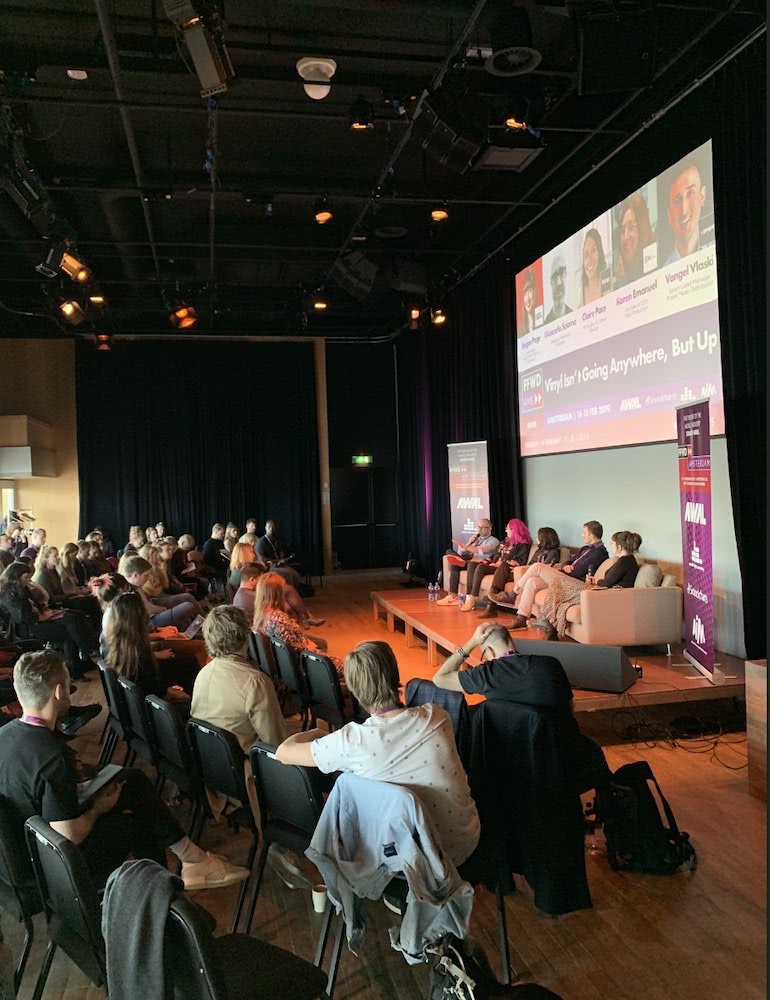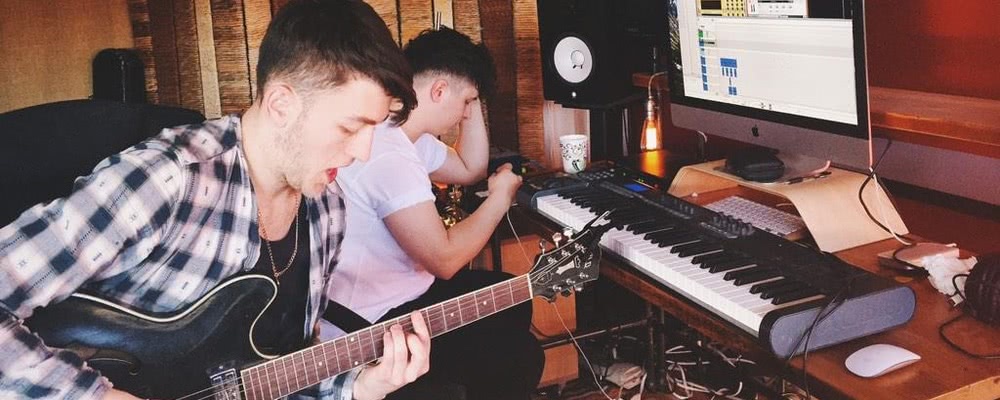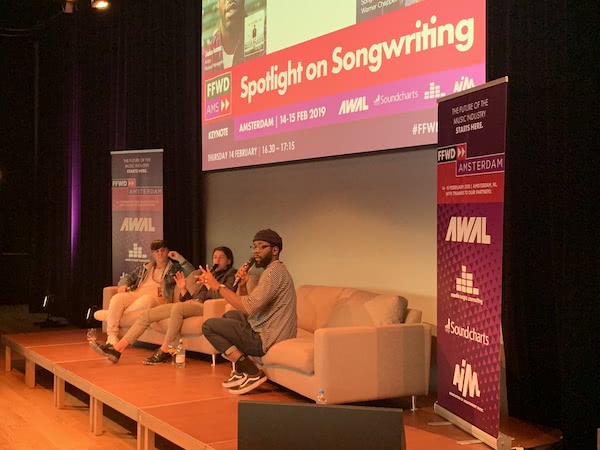What’s next for vinyl, lessons from those at the top, and more front and centre at FastForward Amsterdam

From the rise and rise of vinyl sales and what that means for artists, to lessons from those who make big bucks without ownership, to why staying healthy on the road isn’t just an artist issue, FastForward was successful in its goal to tackle some of the music industry’s most pressing issues.
FastForward launched in 2013 in Amsterdam when its founder Chris Carey wanted to create an event which nurtured meaningful connections. The select 150 delegates who made the trek back to its origin city for the now global conference were not disappointed.
What’s next for vinyl?
The music industry is still riding the high of vinyl sales being the highest since early ‘90s, and as the first panel of the conference outlined, the format’s popularity isn’t going anywhere but up.
Giancarlo Sciama, a Catalogue Marketing Consultant, said consumers are obsessed with the format because so much of the nostalgia-inducing music we love was put down in vinyl. More than that though, the physical experience of handling vinyl rather than just hitting shuffle can’t be replaced.
“So much work was done on the artwork; it was this beautiful tangible thing,” said Sciama. “[…] And every 20 minutes you’d have to get up and flip it over so there was that physical interaction with it.”
Claire Pace, VP of People & Culture at Discogs offered insight into vinyl consumers via Discogs data. She said consumers of the world’s largest online music database (which sold almost 11 million records in 2018) are predominantly male, with the average age having dropped from 35-44 to 25-34 in recent years.
Vangel Vlaski, Product Manager & Sync Coordinator at Proper Records, said around 57% of those buying vinyl from physical retail stores are likely to be even younger, in the 15-25 age demographic.
“It’s a bit more diverse when it comes to who goes into the shops,” he said.

It’s this young demographic who have the most curious consumption habits however. Giancarlo Sciama said 70% of people buying vinyl don’t even have a record player, it goes straight to the shelf.
From an artist perspective, artists and labels alike need to think about how the record will travel from the manufacturer, and must ensure it includes a workable, scannable barcode.
“It’s crucial, it’s what keeps careers alive […] I like a well designed, well thought out product, but it needs to benefit the career of the artists putting it out,” he said.
Vinyl isn’t going anywhere but up – or at least levelling off from its last monumental growth spurt – but what was made clear by the panel is it’s actually the physical format in general that is on the rise.
The panel behooved all artists and labels to include CDs and vinyl on their P&L planning documents.
Karen Emanuel, Owner at Key Production, said she presses more CDs than vinyl and that fans aren’t strict with one medium when to comes to music consumption: “I can tell you it’s holding up really well.”
Lessons from the ‘rental economy’
Marketing Consultant Emily Scoggins lead a panel of industry figures who run their businesses without physical spaces or products.
“The biggest hotel company in the world doesn’t own hotels. The biggest taxi firm doesn’t own any taxies. Meanwhile music consumers are increasingly renting music, and their attention is borrowed, not captured.”
Stuart Dredge, Editor at Music Ally, said because of the huge decline in physical spaces for businesses, there might come a day when Spotify opens a shop. It could even allow users to experience playlists like Rap Caviar in the flesh. A storefront would come as no surprise, the streaming giant has already started pressing vinyl after all.
“Maybe shops will become experiences […] it wouldn’t surprise me at all,” he said.
In the case of Sony Music UK, its Director of Analytics Lucy Ball said the major often recycles content to keep fans’ attention.
“Just because content might be old to someone else, doesn’t mean it might be new to fans who have recently come to that artist,” she said.
Ball said a major task for labels is to help artists reach their fanbases, data plays an integral role in this.
“We spend a lot of time and effort on working out ways to create [deep and meaningful] relationships,” she said.
Benn Moore, the Brand and Marketing Lead at social event service Mr Social cut his teeth working for some of the most popular dating apps in the world.
Moore said throw-away culture (where society is strongly influenced by consumerism) and urban loneliness has people turning to apps as a disposable companionship.
Yet, businesses still struggle to handle the weariness that often comes with high usage. Moore found that people who spoke about their most-used apps said they spent 20 mins a time, three-four times a day using them – a large investment of their attention – but then felt negative toward the actual app.
“You want to keep people on the apps but how they’re feeling about it starts to go down [as they increase usage]. […] It’s quite challenging really,” he said.
Remote Control Agency’s Pat Carr on going your own way
Chris Carey himself took on one of the most anticipated keynote interviews of the day with award-winning marketeer, experienced GM and company director of Remote Control Agency, Pat Carr.
After working in the industry for 15 years with roles in management with Simon Fuller, in publishing as SVP of Marketing at BMG, and in the label sector with Infectious – where she partnered with Michael Gudinski to launch Temper Trap in the UK – Carr started Remote Control by mistake in her efforts to help friends.
In 2000 Carr launched what is seen as the first ever label services company.
“I’ve always prided myself in not asking anyone to do anything I can’t do myself – in the digital realm,” she quipped. “But I challenge anyone to sticker a 7 inch faster than me.”
Pat Carr is a total legend #FFWDxAMS pic.twitter.com/tnsyS2WyBD
— Emily Scoggins (@emilyrocks) February 14, 2019
On her advice to upstarts, Carr said you must know what you want to do, and have a team of key people around you, including accountants:
“I got into trouble the first time around,” she admitted. ” I did have financial problems because [I thought] ‘Oh I’ll just borrow a bit here and a bit there’. Don’t do that! It’s bad! Set yourself up properly.”
“And enjoy it,” Carr added. “Enjoy what you do; love it.”
Staying healthy on the road
From Avicii, to Mac Miller, Amy Winehouse, Kurt Cobain and Michael Jackson, musicians are suffering at the hand of the fast-paced music industry.
The panel on mental health was a favourite for many of the delegates, who had lived through industry era where it was largely ignored.
For artist Kimberly Anne aka LANTA, her experience on tour with acts like Haim, First Aid Kit and Jess Glynne has opened her eyes to how the industry can view its acts.
“As an artist you’re often seen as a product,” she said. “But your product is so entwined into who you are. […] When it’s put into a business model, and put into a machine and pulled out the other side, it can be a traumatic experience.”
Sydney native Rowan Brand managed Boy & Bear until 2011, and launched his independent boutique artist management company TRIBE in 2017, where he manages acts like Alpines, Tusks and Bear’s Den out of London and the Netherlands.
Brand said he has a feeling of duty as a manager to protect his artists but then understands he’s not always going to get it right. As a strategic procedure, as his bands get busier with taxing tour runs and press commitments, he schedules home life and down time for his artists.
Personal Life Coach Kate Craker said it’s important for artists to bring aspects of their home life on tour.
“Do keep routines, or do have routines that you keep on tour. Because if you don’t… it’s a bubble and what happens to that whopping great bubble when you come home?”
Darren Hemmings, the Managing Director of UK strategic marketing consultancy Motive Unknown, said managers need to help steer artists away from going overboard with their riders.
“It’s alright to have a blow-out now and again. But if you normalise a consistent intake that makes this completely standard, it’s never going to end well,” he warned.
Kate Craker said it’s important for artists to have people in their lives who aren’t part of the “cash register”.
Meanwhile Darren Hemmings said it’s about managing people’s states and not seeing them as a constant resource.
“These days I’m glad there’s much more sensitivity around [mental health]. “[…] As peoples’ behaviour gets more erratic you’re just praying that someone will step in.”
Finally, a word from our sponsors, the songwriters
One of the oft-missing elements of music industry conferences is the songwriter who actually writes the hits which keep the sector churning. During the final interview of the day, UK artist Jake Isaac sat down with Warner/Chappell-signed songwriters Mac & Phil from Swindon, who have co-penned hits for The Chainsmokers, James Arthur, Miguel and Emeli Sandè.
Matthew Holmes and Phil Leigh met in high school and bonded over their love of music, spirituality and their willingness to be open with their emotions and creativity.
“I think him and I are just separate parts of the same brain,” said Phil.
When asked about their process, the pair said they spend the first three hours just getting to know the artist.
“You find that the more you talk that easier the song comes, by the end,” said Mac. “[…] Most songs just happen, you don’t realise they happen.”

Mac & Phil
We have Stuart Dredge from Music Ally to thank for his clever audience question on the streaming algorithm. He asked whether the pair feel pressure to adhere to certain streaming algorithm guidelines.
It’s a known fact popular music artists are increasingly shortening the length of their songs so they can reap the financial benefit (more songs equals more money as streaming services pay rights holders per play.)
“I think that happens with pretty much every song we send out right now,” Mac admitted. “[…] I think you just have to stay true to you but I guess listen to what needs to be done as well.”

Mac & Phil with Jake Isaac
FastForward Amsterdam continues for one more day. Its panels cover how data changes cultures, the future of niche music festivals, the next stage for Latin music, and more.
FastForward returns to Sydney’s University of Technology Sydney (UTS) on 11-12 April, before its staging in London in September.
This article originally appeared on The Industry Observer, which is now part of The Music Network.






























